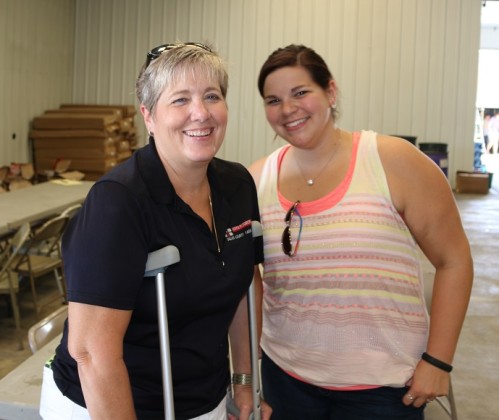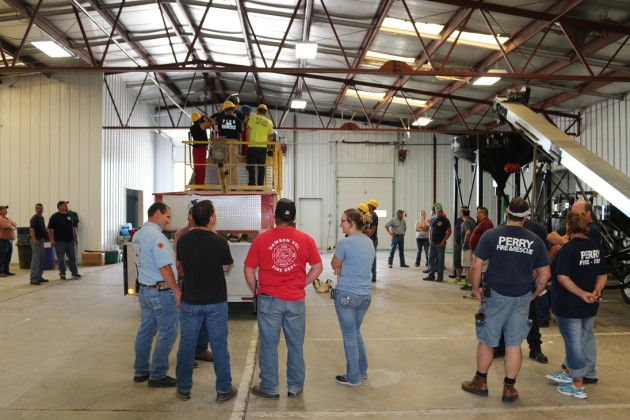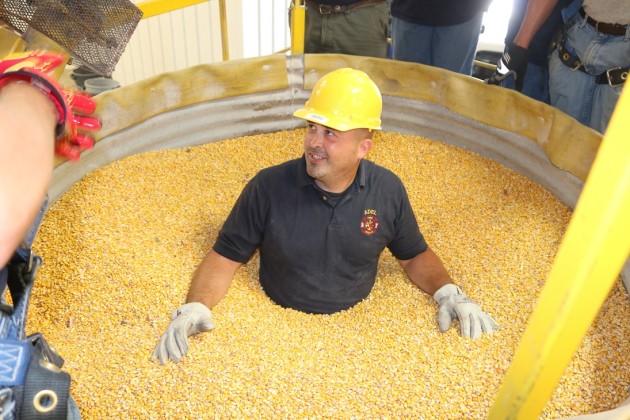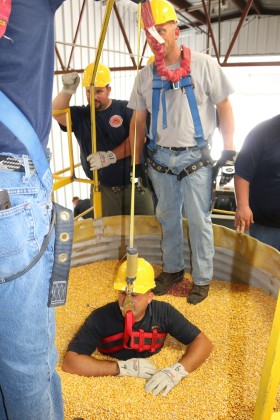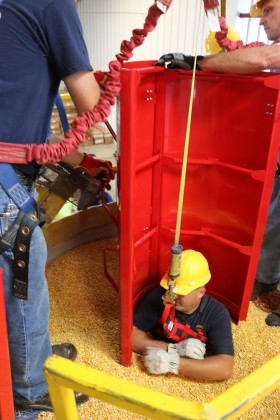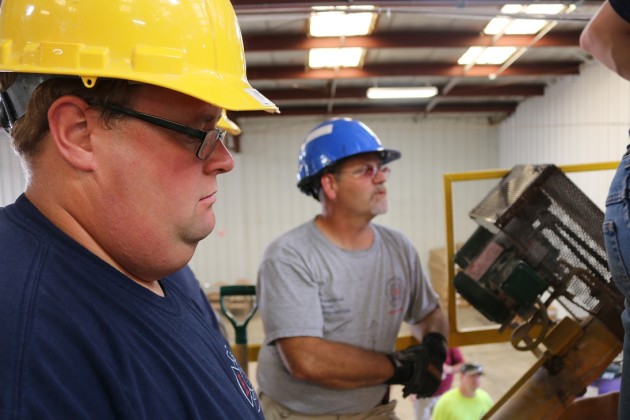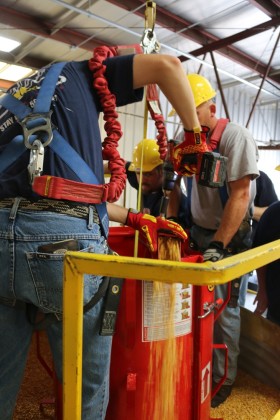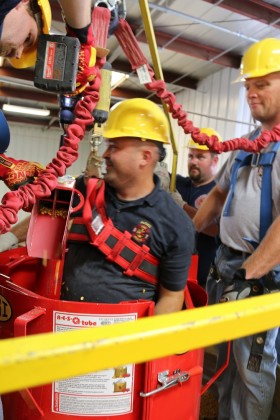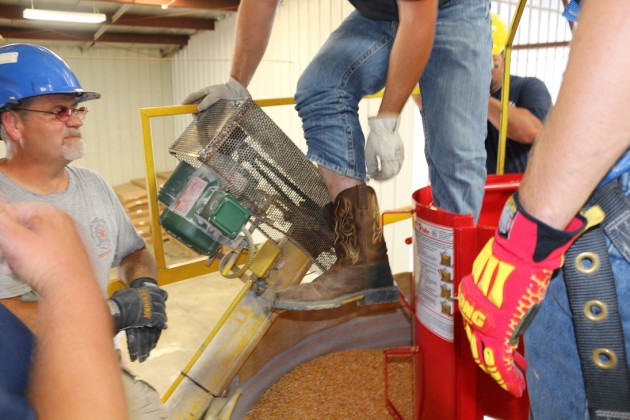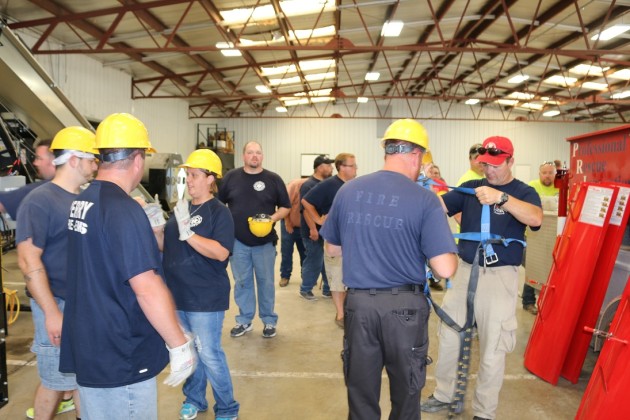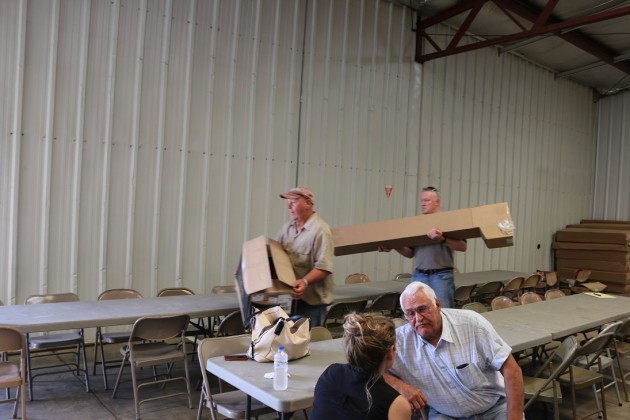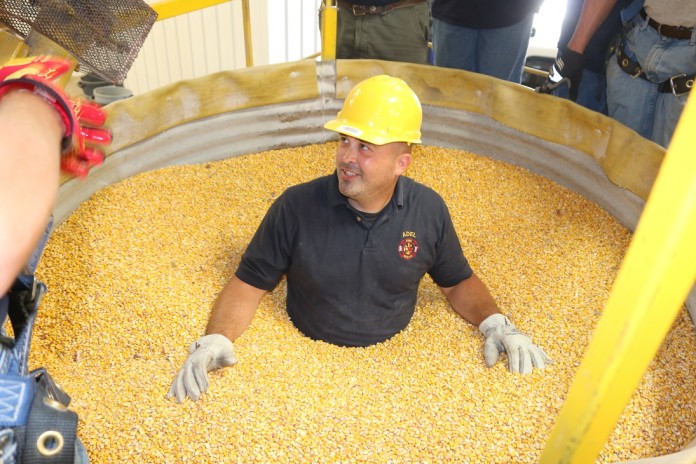
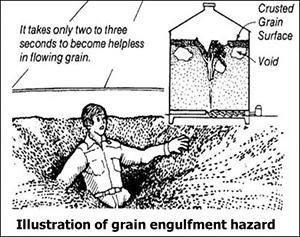
After a successful year-long fundraising drive, the Dallas County Farm Bureau recently donated grain rescue kits to six fire departments in Dallas County, and last Saturday they hosted a training and demonstration session to give local first responders hands-on experience with the new equipment.
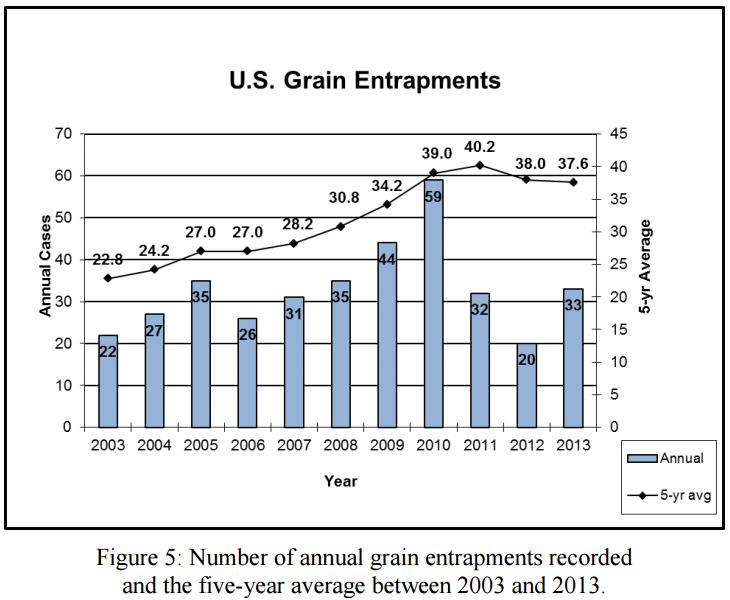
Jeremy Coyle, Farm Bureau regional manager, was on hand for the day-long training course, staged at Tri-County Ag near Perry. He said Dallas County Farm Bureau’s motive for the donations was the desire to better prepare and equip emergency responders for grain bin entrapments.
“We were being proactive in raising funds to purchase these rescue tubes, rescue augers and power drills to operate the augers,” Coyle said. “Most departments don’t have this type of equipment, which is necessary in an on-farm grain bin accident. These innovative devices greatly increase the chance of a victim’s survival when entrapped in grain.”
Grain entrapments usually happen when a farm worker enters a bin or silo to break up clumps of grain during loading or unloading. Suffocation can occur in as few as 60 seconds, but quick action can prevent fatalities.
The number of grain bin entrapments and resulting deaths in the U.S. rose in 2014 to their highest levels since 2010, due in part to last year’s record harvest, according to Purdue University’s annual “2014 Summary of U.S. Agricultural Confined Space-Related Injuries and Fatalities.”
Data shows there were 38 documented entrapments resulting in 17 deaths in 2014, compared with 33 entrapments and 13 deaths in 2013. The number of reported entrapments peaked at 59 in 2010, with 26 resulting in fatalities.
Fire departments in Perry, Dawson, De Soto, Adel, Minburn and Redfield received the $4,500 rescue packages, sold by Sorem Sales in Nevada, Iowa. The Dallas Center Volunteer Fire Department already owned a grain bin rescue tube and so received only an auger and power drill.
Dallas County Farm Bureau Secretary Janet Hick of rural Perry said she spent a lot of time over the past year on the fund drive. Her commitment was so firm that even a broken hip suffered the day before the training session was not enough to keep her away.
“I was determined to be here,” Hick said. She said many donations, both large and small, were received from Dallas County Farm Bureau members and local businesses.
“The Dallas County townships also contributed a lot,” she said.
Training for the local first responders was provided by Van Meter-based Professional Rescue Innovations, owned by Jerry Eslick, chief department training officer in the West Des Moines Fire Department. Don Ashenfeller of Bagley was the instructor at Saturday’s grain extraction training.
“The state requires 24 hours a year of training for fire department members,” said Perry Volunteer Fire Department Chief Chris Hinds, “and this counts. It’s our first time training with this kind of equipment.”
The four-piece grain rescue tube is used to assist someone trapped in grain within a bin or silo. The pieces are pushed down into the grain one section at a time and clamped together to form a containment barrier around the victim. The barrier allows rescue workers to remove grain surrounding the trapped individual by using a small auger driven by a power drill.
Each of the rescue tube’s four aluminum sections weighs less than seven pounds and can fit through openings as small as 17 inches. The tube is 60 inches tall and fits around the victim when completely assembled.
The risk of entrapment is greatest for inexperienced and young farm workers, according to Purdue University Professor of Agricultural Health and Safety Bill Field.
“Dealing with a mountain of grain can be very hazardous,” Field said. “If you’re working around grain for the first time and you might not be aware of the risks involved, the potential for an accident is much higher.”









